Spotlight on PKDF grantees and publications
PKDF funds researchers and clinician scientists across the world who are dedicated to finding answers to help us better understand polycystic kidney disease. Here are some highlights of their work.

Laura Onuchic, M.D.
Yale School of Medicine
“ In my current project, we expressed the C-terminal tail of PC1 (a segment that represents only 5% of the total PC1 protein) in PC1-deficient ADPKD pre-clinical mouse models. We showed that this was sufficient to significantly slow disease progression and preserve kidney function.“ – Laura Onuchic, M.D.
Read Dr. Onuchic’s recent publication:
Learn more about Dr. Onuchic in the researcher spotlight article here.

Kurt Zimmerman, Ph.D.
University of Oklahoma Health Sciences Center
“Surprisingly, genetic deletion of adaptive immune cells significantly reduced injury-accelerated cystic disease but had no effect on cyst growth in non-injured cilia mutant mice, independent of the rate of cyst growth or underlying genetic mutation.“ – Kurt Zimmerman, Ph.D.
Read some of Dr. Zimmerman’s recent publications:
Learn more about Dr. Zimmerman’s research grant and others from 2021 here.

Kristen Nowak, Ph.D.
University of Colorado – Denver
“Our translational study design incorporating complementary human and animal data, including assurance of feasibility in this first dietary restriction and weight loss trial in humans with ADPKD. We provided measures of abdominal adiposity using MRI images collected to measure TKV and a rigorously designed intervention administered by registered dieticians. In our mouse study, we performed the first assessment of intermittent fasting in a PKD model, the first study of time-restricted feeding in an orthologous ADPKD model, and a direct comparison of three different dietary regimens.“ – Kristen Nowak, Ph.D.
Learn more about Dr. Nowak’s research grant and others from 2020 here.
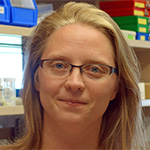
Katharina Hopp, Ph.D.
University of Colorado – Denver
“Using various mouse models and cellular co-culture systems, we are trying to map how the communication network among immune cells and the cystic epithelium differs in an ADPKD versus healthy kidney with the hypothesis that cystic epithelial cells have adapted to modulate their cross-talk with immune cells to create an immunosuppressive environment supportive of cyst expansion.“ – Katharina Hopp, Ph.D.
Read some of Dr. Hopp’s recent publications:
Immune Checkpoint Activity Regulates Polycystic Kidney Disease Progression
Weight loss and cystic disease progression in autosomal dominant polycystic kidney disease
Metabolic reprogramming in a slowly developing orthologous model of polycystic kidney disease
Role of chemokines, innate and adaptive immunity
Renal double negative T cells: unconventional cells in search of a function

Eduardo Chini, M.D., Ph.D.
Mayo Clinic
“The goal of this project is to find if alternative nutritional manipulations involving methionine restriction
will have the beneficial effects in ADPKD. Our data showed that dietary restriction of methionine has
beneficial effects in cystic disease in ADPKD mice. In collaboration with research team from UT
Southwestern; we identified the novel pathogenic axis in ADPKD involving methionine-mettl3-
N6-methyladenosie” – Eduardo Chini, M.D., Ph.D.
Learn more about Dr. Chini’s research grant and others from 2020 here.

Paul DeCaen, Ph.D.
Northwestern University
“We’re determining how variants in polycystins alter their activity in ADPKD — my hope is that this knowledge will set the foundation for rational drug design for this disease. Since there are numerous variants in the ADPKD population, it is likely they will affect the channel in different ways. In other words, some gene changes may cause the channel to be turned off. If so, can we design drugs to re-activate it? By defining unique prototypic drug mechanisms, we will have a premise for “personalized” PKD treatment based on the patient’s specific gene mutation..” – Paul DeCaen, Ph.D.
Learn more about Dr. DeCaen’s research grant and others from 2018 here.
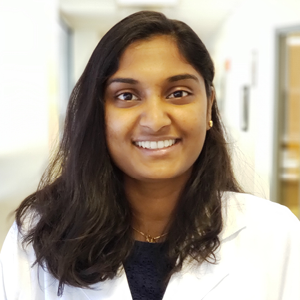
Harini Ramalingam, Ph.D.
University of Texas Southwestern Medical Center
Read one of Dr. Ramalingam’s recent publications:
Modulation of polycystic kidney disease by non-coding RNAs
A methionine-Mettl3-N6-methyladenosine axis promotes polycystic kidney disease
Learn more about Dr. Ramalingam’s research fellowship and others from 2019 here.

Whitney Besse, M.D.
Yale University
Genetic Analysis in Kidney Disease: Advancing Clinical Diagnosis and Research Discovery
Adult Inactivation of the Recessive Polycystic Kidney Disease Gene Causes Polycystic Liver Disease
Learn more about Dr. Besse’s research grant and others from 2018 here.
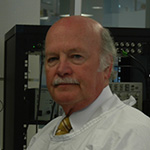
John Shine, Ph.D.
Garvan Institute, Australia
“Having demonstrated that WGS is the most effective diagnostic tool for PKD in a “real world” cohort of patients, our research is currently focused on two main areas: 1) Using the power of WGS to identify the causative predetermining inherited mutation in the ~10% of patients without an identified mutation in either of the two known genes, PKD1 and PKD2, and 2) Identification of the secondary mutations responsible for the development of multiple cysts.
Outcomes from these studies should add to our knowledge of the underlying biology responsible for the initiation and development of cysts leading to renal failure.“ – John Shine, Ph.D.
Learn more about Dr. Shine’s research grant and others from 2018 here.

Owen Woodward, Ph.D.
University of Maryland Baltimore
Read some of Dr. Woodward’s recent publications:
Molecular Structure of the PKD Protein Complex Finally Solved
GDNF drives rapid tubule morphogenesis in a novel 3D in vitro model for ADPKD
Learn more about Dr. Woodward’s research grant and others from 2018 here.
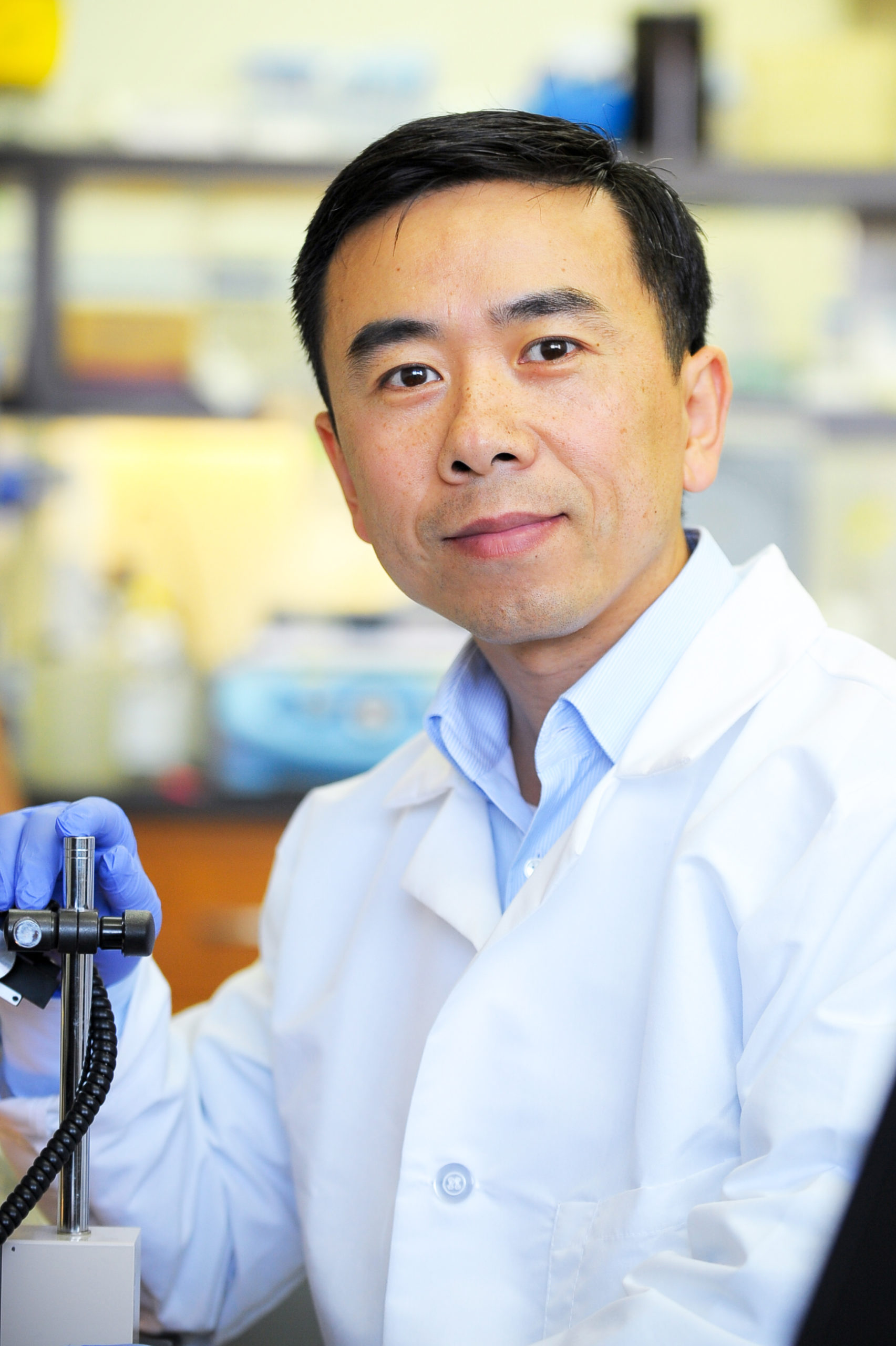
Yong Yu, Ph.D.
St. John’s University
“Our research shows that both PC1 and PC2 proteins work tightly together to form the functional channel complex, which plays essential roles in conducting ions, including Ca2+, across the cell membrane. This role may be essential for keeping the normal development of the kidney and preventing cyst formation.“ – Yong Yu, Ph.D.
Read some of Dr. Yu’s recent publications:
The ion channel function of polycystin-1 in the polycystin-1/polycystin-2 complex
Structural basis for Ca2+ activation of the heteromeric PKD1L3/PKD2L1 channel
Learn more about Dr. Yu’s research grant and others from 2018 here.
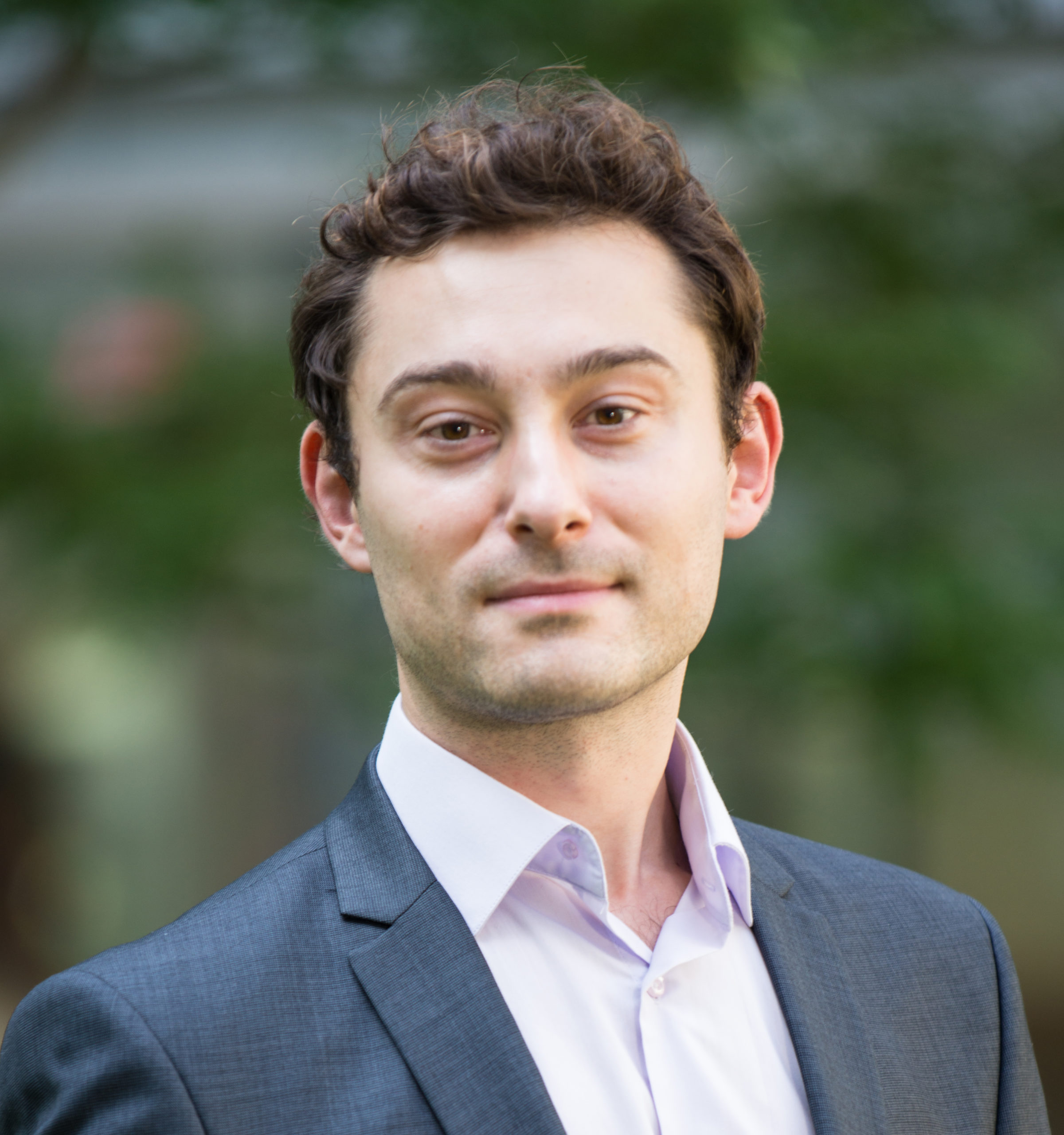
Sorin Fedeles, Ph.D.
Yale School of Medicine
“I strongly believe that given the combination of advances in genome sciences, AI-enabled drug screening, and pre-clinical model development, the PKD therapeutic landscape as a whole is nearing an inflection point—that is, a stage where novel disease biomarkers in tandem with personalized pharmacogenomic approaches can inform clinical decisions for the next generation of PKD treatments.“ – Sorin Fedeles, Ph.D.
Learn more about Dr. Fedeles’s research grant and others from 2019 here.
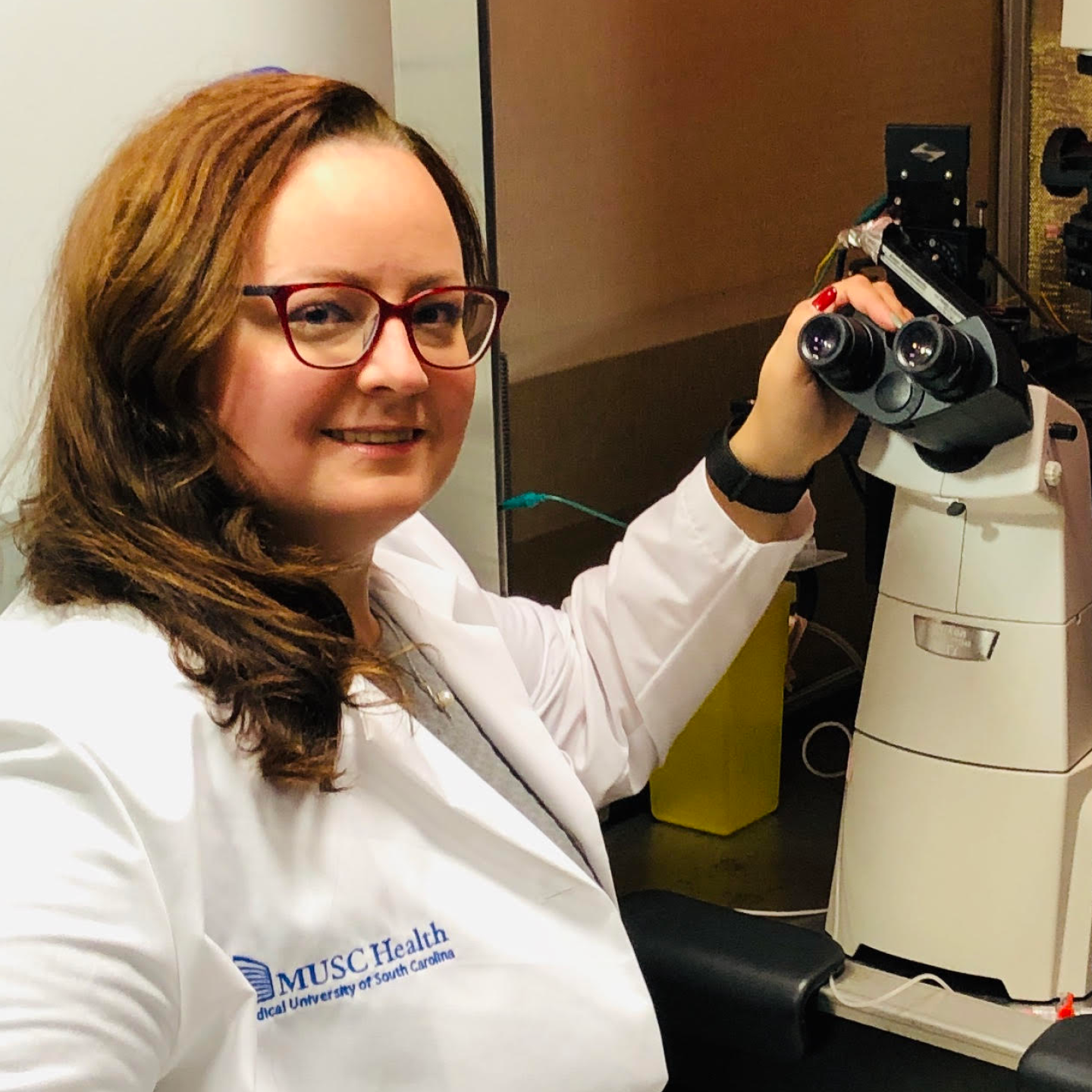
Daria Ilatovskaya, Ph.D.
Medical University of South Carolina
“My primary research focus is hypertension and PKD, and the dietary aspects of their development. I am interested to know how the salt we eat can affect these diseases, what damage too much or too little salt can cause, and what the role of hormones is in their progression.“ – Daria Ilatovskaya, Ph.D.
Read some of Dr. Ilatovskaya’s recent publications:
Salt-deficient diet exacerbates cystogenesis in ARPKD via epithelial sodium channel (ENaC)
Insights Into the Molecular Mechanisms of Polycystic Kidney Diseases
Learn more about Dr. Ilatovskaya’s research grant and others from 2018 here.
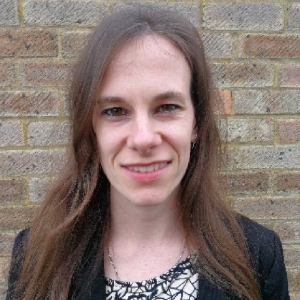
Rebecca Walker, Ph.D.
University of Maryland
“I did my doctorate in Dr. Dominic Norris’ lab in Oxford, UK. His lab focuses on “cilia in development and disease,” and had recently worked on a mutant mouse that had left-right patterning defects. This mouse actually had a mutation in Polycystin-2 which caused polycystic kidney disease. Working on this mouse was the basis for my thesis and made me the pioneer of kidney research in Dr. Norris’ lab. This is where my love of kidneys and PKD flourished!“ – Rebecca Walker, Ph.D.
Read one of Dr. Walkers’s recent publications:
The heteromeric PC-1/PC-2 polycystin complex is activated by the PC-1 N-terminus
Learn more about Dr. Walker’s research fellowship and others from 2019 here.
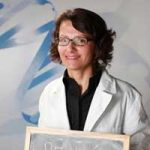
Alessandra Boletta, Ph.D.
San Raffaele Scientific Institute
“We’ve discovered that the use of a simple pharmacological compound called 2-deoxy-D-glucose effectively retards disease progression. We also discovered that a much broader metabolic reprogramming occurs in the disease, including compensatory glutaminolysis. Our prediction is that acting on both simultaneously will result in an amplification (rather than in a sum) of the efficacy of treatment, and we are currently testing this hypothesis on animal models.“ – Alessandra Boletta, Ph.D.
Learn more about Dr. Boletta’s research grant and others from 2018 here.

Feng Qian, Ph.D.
University of Maryland
“Our results suggest that (i) PC1 may form a complex with itself and (ii) PC1 and PC1/PC2 may interact with different mitochondrial proteins that are critical for mitochondrial structure and function. This information is important for our understanding of polycystins regulation of mitochondrial function, which was previously implicated in ADPKD progression.“ – Feng Qian, Ph.D.
Read one of Dr. Qian’s recent publications:
The heteromeric PC-1/PC-2 polycystin complex is activated by the PC-1 N-terminus
Learn more about Dr. Qian’s research grant and others from 2019 here.
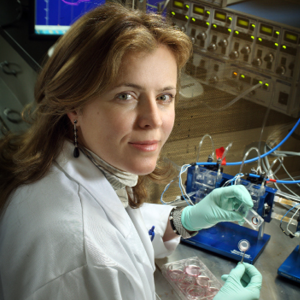
Liudmila Cebotaru, J.D., M.D.
Johns Hopkins Medical Center
“Our research demonstrates that the corrector, VX-809, reduces cyst growth, both in mice and in 3D models. The mice had better renal function and less cystic growth. The VX-809 also reduced the levels of heat shock proteins in the mouse kidneys, consistent with the restoration of cellular proteostasis.“ – Liudmila Cebotaru, J.D, M.D.
Read one of Dr. Cebotaru’s recent publications:
Learn more about Dr. Cebotaru’s research grant and others from 2019 here.

Karel Liem, Ph.D.
Yale University
“Polycystin proteins function in renal primary cilia to regulate a pathway important to kidney functional homeostasis. In mouse models of ADPKD, we found that the Hedgehog pathway had no significant effect on polycystic kidney disease initiated by Pkd1 inactivation, excluding it as a functional cell-autonomous component of kidney cyst formation in these ADPKD models“ – Karel Liem, Ph.D.
Learn more about Dr. Liem’s research grant and others from 2018 here.
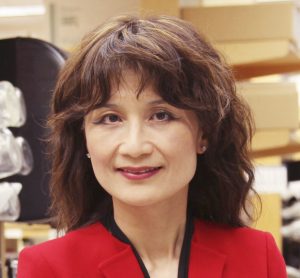
Jing Zhou, M.D., Ph.D.
Brigham and Women’s Hospital
“Our findings advocate an essential role of polycystins in the structure and function of the primary cilia and implicate β-catenin as a key inducer of cystogenesis downstream of the primary cilia. Our data suggest that modulating cilium length and/or its associated signaling events may offer novel therapeutic approaches for ADPKD.“ – Jing Zhou, M.D., Ph.D.
Read some of Dr. Zhou’s recent publications:
Genetic reduction of cilium-length by targeting intraflagellar transport 88 protein impedes kidney and liver cysts formation in mouse models of autosomal polycystic kidney disease
Learn more about Dr. Zhou’s research grant and others from 2018 here.

Xiaogang Li, Ph.D.
Mayo Clinic
“ Our research will identify the methylation of specific genes in PKD associated signaling pathways and in pathways not previously studied in PKD, which should forward our understanding about the roles of DNA methylation in ADPKD progression. “ – Xiaogang Li, Ph.D.
Learn more about Dr. Li’s research grant and others from 2018 here.
Last updated March 2023







